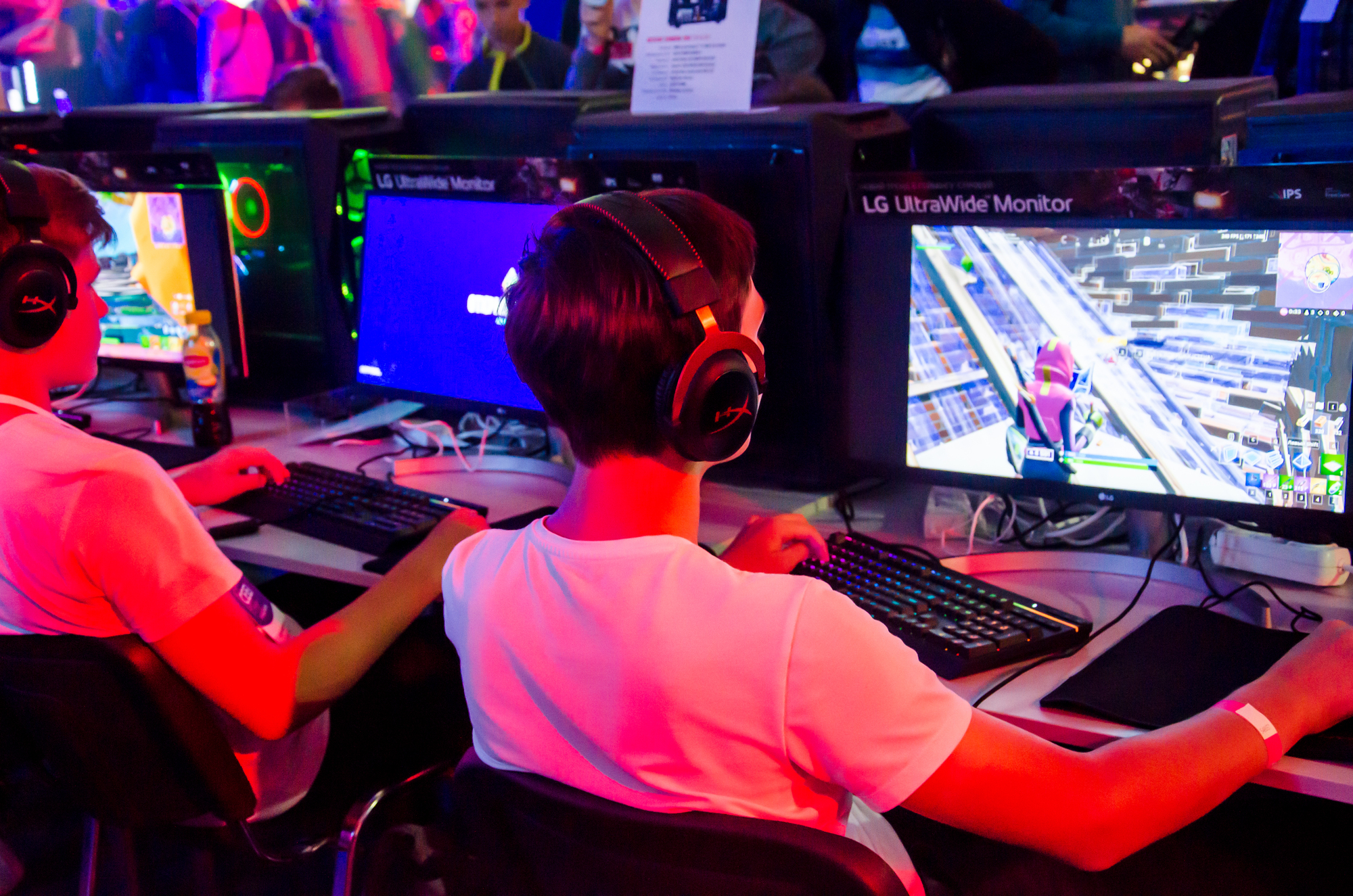Gaming has become a global phenomenon, captivating millions of players worldwide. The allure of video games extends far beyond mere entertainment, tapping into fundamental psychological needs and desires. Games provide a unique blend of challenge, reward, and social interaction that stimulates the brain’s pleasure centers and keeps players engaged for hours on end.
The psychology behind gaming reveals several key factors that drive people to play. Games offer an escape from reality, allowing players to immerse themselves in fantastical worlds and take on heroic roles. This escapism provides stress relief and a sense of accomplishment that may be lacking in daily life. Additionally, many games incorporate social elements, fostering connections and friendships among players across the globe.
Video games also tap into our innate desire for growth and mastery. As players overcome obstacles and improve their skills, they experience a sense of progress and achievement. This constant feedback loop of challenge and reward triggers the release of dopamine, reinforcing the desire to continue playing. Understanding these psychological mechanisms sheds light on both the appeal and potential risks of gaming in modern society.
The Psychological Appeal of Video Games
Video games offer a unique blend of entertainment, challenge, and reward that taps into fundamental psychological needs and desires. This combination creates a powerful draw for players across age groups and demographics.
Gaming and Dopamine Release
Video games trigger the release of dopamine in the brain, a neurotransmitter associated with pleasure and reward. This chemical response reinforces gaming behaviors and creates a sense of enjoyment.
The intermittent reward schedules in many games, where players receive unpredictable rewards, are particularly effective at stimulating dopamine production. This mechanism keeps players engaged and motivated to continue playing.
Achievements, level-ups, and in-game rewards all contribute to this dopamine-fueled cycle of engagement. The brain’s reward system responds to these virtual accomplishments in ways similar to real-world achievements.
Escapism and Fantasy in Games
Games provide an escape from daily stresses and worries. Players can immerse themselves in fantastical worlds, taking on new identities and roles that may be unavailable in their everyday lives.
This form of escapism allows individuals to temporarily set aside real-world concerns and experience a sense of control and empowerment within the game environment. The ability to explore alternate realities and scenarios fulfills psychological needs for novelty and adventure.
Many games offer rich, detailed worlds that players can get lost in for hours. This immersive quality provides a mental break from reality and can serve as a form of stress relief and relaxation.
Cognitive Benefits and Skill Development
Video games can enhance various cognitive skills. Problem-solving abilities are often challenged and improved through gameplay, as many games require strategic thinking and creative solutions.
Hand-eye coordination and spatial awareness can be sharpened through action and puzzle games. These skills may translate to real-world tasks and activities.
Memory and attention span can also benefit from certain types of games. Strategy games, for example, often require players to remember complex information and maintain focus for extended periods.
Some educational games are designed specifically to boost learning in areas like mathematics or language skills. These games combine entertainment with skill development, making the learning process more engaging.
Motivations and Rewards in Gaming
Gaming taps into psychological drives and rewards systems that keep players engaged. These elements work together to create compelling experiences that satisfy various needs and desires.
Achievement and Progression Systems
Games use structured achievement systems to provide players with a sense of accomplishment. These often include levels, points, and badges that mark progress and milestones. As players advance, they unlock new content, abilities, or customization options.
Many games feature experience points (XP) that accumulate as players complete tasks. This XP system ties directly to character growth, allowing players to feel a tangible sense of improvement over time.
Leaderboards and high scores add another layer of achievement, letting players compare their performance to others. This fosters both personal goal-setting and friendly competition.
Competition and Social Connections
Multiplayer games leverage our innate desire for social interaction and competition. These games create communities where players can form relationships, work together, and test their skills against others.
Team-based games promote cooperation and strategy development. Players must communicate and coordinate to achieve shared objectives. This builds camaraderie and a sense of belonging within the game world.
Competitive modes pit players against each other directly. The thrill of victory and the drive to improve fuel ongoing engagement. Tournaments and ranked play systems provide structured competitive environments.
Balance of Challenge and Enjoyment
Game designers carefully balance difficulty to keep players engaged. Too easy, and players get bored. Too hard, and they become frustrated. The ideal is a state of “flow” where challenge matches skill level.
Many games use adaptive difficulty that adjusts based on player performance. This helps maintain an optimal level of challenge for each individual.
Reward schedules play a key role in maintaining interest. Variable reward systems, where players can’t predict exactly when they’ll receive a reward, are particularly effective at encouraging continued play.
Social Dynamics and Multiplayer Interactions
Multiplayer games create rich social environments that foster connections and teamwork. These virtual spaces enable players to build relationships, develop strategies, and engage in shared experiences.
Community Building and Online Friendships
Multiplayer games serve as hubs for social interaction, allowing players to form lasting friendships across geographical boundaries. Online communities develop around specific games, providing spaces for players to share experiences, strategies, and common interests. These digital social circles often extend beyond the game itself, with players connecting on social media platforms and forums.
Many games incorporate built-in social features like guilds, clans, or alliances. These structures encourage players to work together, fostering a sense of belonging and shared purpose. Regular events and activities within games further strengthen community bonds, creating opportunities for players to interact and collaborate.
Cooperative Play and Team Strategy
Cooperative gameplay elements in multiplayer games promote teamwork and strategic thinking. Players must coordinate their actions, communicate effectively, and leverage individual strengths to achieve common goals. This collaborative environment can improve social skills and problem-solving abilities.
Team-based games often require players to take on specific roles, such as healers, tanks, or damage dealers. This role specialization encourages interdependence and mutual support among team members. Players learn to trust their teammates and adapt to various situations, enhancing their ability to work effectively in group settings.
Competitive multiplayer games also foster social dynamics through team-based play. Players develop strategies, practice together, and support each other during matches. This shared experience of victory and defeat can create strong social bonds and a sense of camaraderie among teammates.
Gaming Addiction and Psychological Impact
Gaming addiction can have significant effects on mental health and well-being. Excessive gaming may lead to various psychological issues, but understanding the underlying factors and implementing appropriate interventions can help address these concerns.
Understanding Gaming Addiction
Gaming addiction involves compulsive engagement in video games despite negative consequences. It can disrupt daily life, relationships, and responsibilities. Signs include preoccupation with gaming, inability to control gaming time, and continued gaming despite problems.
Research suggests that gaming addiction affects a small but significant portion of players. It often stems from a combination of factors, including game design elements that promote continued play, personal vulnerabilities, and environmental influences.
Gaming can serve as an escape mechanism for some individuals, providing temporary relief from stress or emotional difficulties. This coping strategy, while potentially beneficial in moderation, can become problematic when taken to excess.
Mental Health Considerations
Excessive gaming has been linked to various mental health issues. Studies have found associations between problematic gaming and conditions such as depression, anxiety, and social phobia.
Prolonged gaming sessions can disrupt sleep patterns, leading to fatigue and mood disturbances. The intense focus required in gaming may also contribute to attention problems in other areas of life.
Some research suggests a connection between violent video games and increased aggression, though this relationship remains debated. Desensitization to violence is another potential concern, especially for younger players.
Gaming addiction can impact self-esteem and social skills. Excessive time spent gaming may lead to social isolation and difficulties in face-to-face interactions.
Parental Involvement and Moderation
Parents play a key role in preventing and addressing gaming addiction. Setting clear rules and time limits for gaming can help establish healthy habits from an early age.
Encouraging a balanced lifestyle that includes physical activity, social interactions, and other hobbies is important. Parents should model healthy technology use and create opportunities for family activities that don’t involve screens.
Open communication about gaming habits and potential risks is crucial. Parents should stay informed about the games their children play and discuss any concerns.
For those struggling with gaming addiction, professional help may be necessary. Cognitive-behavioral therapy and family therapy have shown promise in treating gaming disorders.












